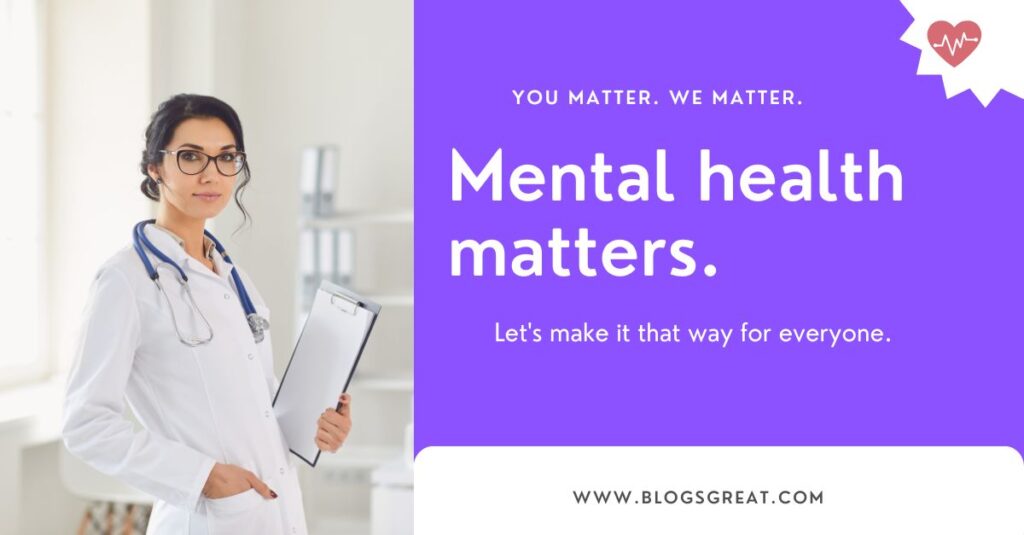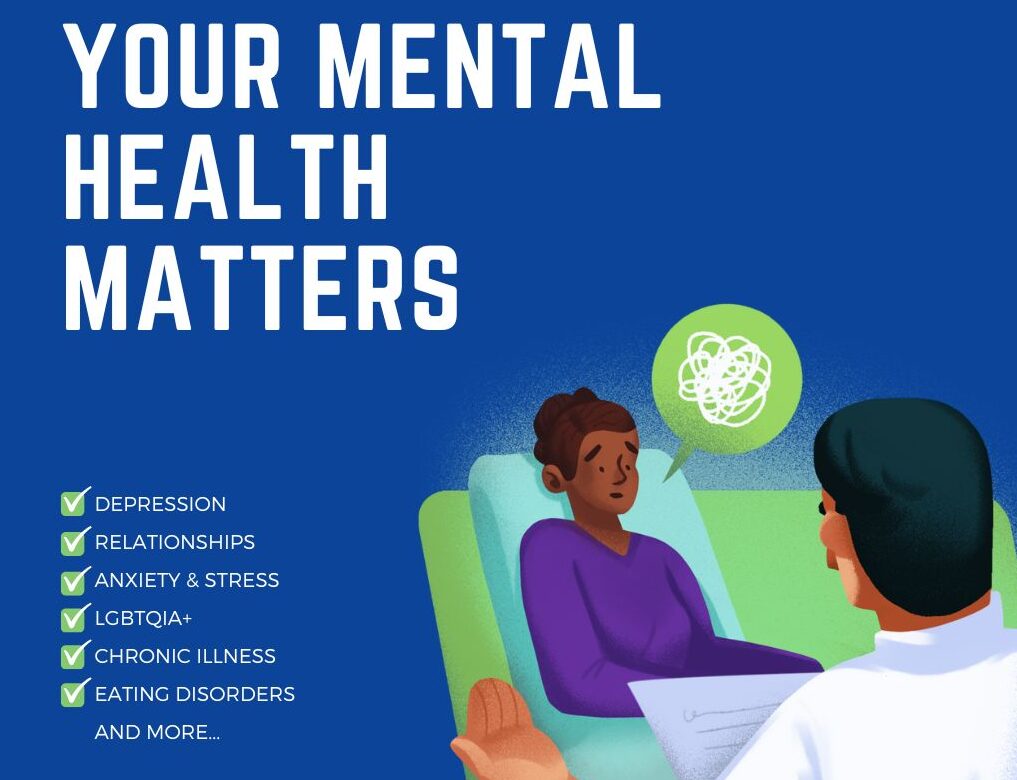In today’s fast -paced world, mental health has become the cornerstone of general welfare. Nevertheless, it is often ignored in favor of physical health or success for the career. The truth is that mental health matters means as much as your physical good. About 1 in 5 adults globally experience a mental health status every year, but still the stigma and misinformation persist. This blog dives into posts Why mental welfare is worth noting, how to identify matches, and action is able to promote emotional flexibility. Let’s break the obstacles and create a healthy mindset together blogsgreat.com.

Understanding Mental Health: More Than Just “Feeling Okay”
Mental health includes our emotional, psychological and social welfare. This affects how we think, work and navigate in daily challenges. Unlike common myths, mental health is not about being happy all the time. Instead, it’s about being a tool for dealing with stress, creating relationships and recovering from mistakes.
Mental welfare is present at a range. Some days you may feel invincible; In other days, even small tasks work heavy – and that is normal. However, chronic feelings of sadness, anxiety or disconnection may indicate deep problems. Identifying this distinction is the first step toward prioritizing your mental health.
Signs Your Mental Health Needs Attention
How do you know when to seek help? While everyone’s experience is unique, common signs of declining mental health include:
- Persistent sadness or hopelessness lasting weeks
- Withdrawal from social activities or hobbies
- Extreme mood swings or irritability
- Changes in sleep or appetite (oversleeping, insomnia, overeating)
- Difficulty concentrating or making decisions
- Unexplained physical symptoms (headaches, stomachaches)
If these feelings interfere with work, relationships, or daily life, it’s time to take action. Ignoring mental health struggles often exacerbates them, much like neglecting a physical injury.
5 Practical Tips to Boost Mental Wellness
Prioritizing mental health doesn’t require drastic changes. Small, consistent habits can create lasting positive effects:
- Stay Active: Exercise releases endorphins, natural mood lifters. Even a 20-minute walk can reduce stress and anxiety.
- Eat Mindfully: Nutrient-rich foods like leafy greens, nuts, and fatty acids support brain function. Avoid excessive sugar and caffeine, which can worsen mood swings.
- Prioritize Sleep: Aim for 7–9 hours nightly. Poor sleep disrupts emotional regulation and heightens stress.
- Practice Mindfulness: Meditation, deep breathing, or journaling helps ground you in the present. Apps like Headspace or Calm offer guided sessions for beginners.
- Set Boundaries: Learn to say “no” to overcommitment. Protecting your time and energy prevents burnout.
Breaking the Stigma: Why Open Conversations Matter
Despite progress, stigma around mental health persists. Many fear judgment or discrimination, leading to silence and isolation. Combating this starts with education and empathy.
- Educate Yourself: Understand conditions like depression, anxiety, or PTSD. Reliable sources like the WHO or NAMI provide accurate insights.
- Speak Up: Share your experiences (if comfortable) to normalize discussions. Phrases like “I’ve been feeling stressed lately” invite connection.
- Avoid Harmful Language: Words like “crazy” or “weak” perpetuate stereotypes. Instead, use supportive language: “It’s okay to ask for help.”
When we treat mental health with the same urgency as physical health, we create safer spaces for healing.
The Power of Community in Mental Health Matters Support
Humans thrive on connection. Building a support network is vital for mental wellness:
- Lean on Loved Ones: Trusted friends or family can offer perspective and encouragement.
- Join Support Groups: Local or online communities (e.g., Mental Health America forums) connect you with others facing similar challenges.
- Seek Professional Help: Therapists and counselors provide evidence-based strategies tailored to your needs. Platforms like BetterHelp or Talkspace make therapy accessible.
Remember, asking for help isn’t a sign of weakness—it’s a step toward strength.
Mental Health Resources to Bookmark
If you’re unsure where to start, these resources offer guidance:
- Crisis Hotlines: Text “HELLO” to 741741 (US Crisis Text Line) or call 988 (Suicide & Crisis Lifeline).
- Apps: Insight Timer (free meditations), Woebot (AI mood tracking).
- Books: The Body Keeps the Score by Bessel van der Kolk, Atomic Habits by James Clear.
Conclusion: Your Mental Health Journey Starts Today
Mental health means something because it shapes all aspects of our lives – how we work how we love. By understanding its meaning, identifying warning signs and using healthy habits, you strengthen yourself and others to bloom. Let’s normalize the conversation, delete the stigma and prioritize emotional welfare. After all, a healthy mind is not a luxury – this is a need.

